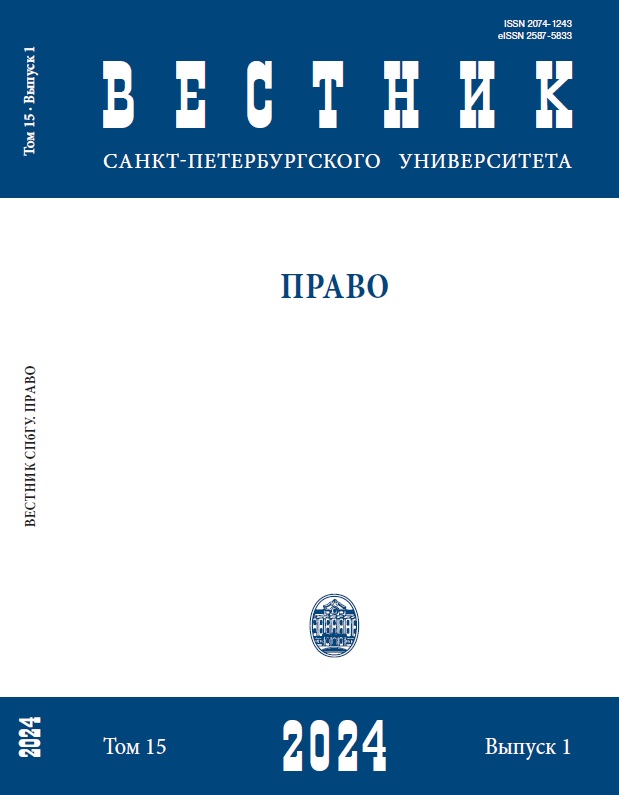Crisis of the international legal system: concept, features, classification
DOI:
https://doi.org/10.21638/spbu14.2024.114Abstract
The article performs a comprehensive analysis of the notion of the “crisis of the international legal system”. It has been demonstrated that the issue of crisis phenomena in international law holds a distinct position in the field of international legal science. Various approaches have been identified for studying this subject, encompassing both the theory of state and law as well as international law. Based on historical examples of the Westphalian, Versailles-Washington systems, as well as the UN system, such signs of a crisis of the international legal system are identified, as the degradation of the core principles that underpin the international legal system, the consistent disregard exhibited by the subjects of international law towards the principles and norms they previously established through consensus, the exclusion of key actors from the international legal system, the lack of a system of boundary agreements, the discrepancy between the evolving practical relations and the international legal regulations, the failure of subjects of international law to engage with international justice bodies during disputes, or the infrequent use of peaceful resolution methods for international conflicts, as well as attempts not to comply with the decision of the international court. The authors have coined the definition of a crisis of the international legal system. A classification of crises of the international legal system has been developed, containing examples from various stages of the development of international relations.
Keywords:
international legal system, principles of international law, crisis, signs of crisis, UN, Versailles system, Westphalian system.
Downloads
References
Downloads
Published
How to Cite
Issue
Section
License
Articles of "Vestnik of Saint Petersburg University. Law" are open access distributed under the terms of the License Agreement with Saint Petersburg State University, which permits to the authors unrestricted distribution and self-archiving free of charge.






